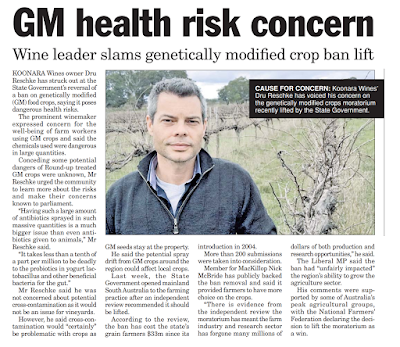Listen to the Podcast Here Australia has welcomed the use of genetically engineered crops, and farmers have found particular benefit from broad acre canola and cotton cultivation. However, the benefits were not realized by some states because of local moratoriums imposed by state governments. Farmers in South Australia grow wheat, canola and pulses, along with wine grapes, olives and other horticultural crops. They would like the option to grow GE canola, as it may offer some benefits. More importantly, new technologies in gene editing may permit rapid response to new threats as well as tackle current issues in drought, frost, and pathogens. Fortunately, a science-minded change in government has led to discussion of removing the ban. I speak with four agricultural leaders from the Grain Producers SA, a non-profit organization coordinating grower advocacy and communications. With Tanya Morgan, Adrian McCabe ( @AdrianMcCabe6 ), Wade Dabinette and Dion Woolford ( @rudigermaxpower





